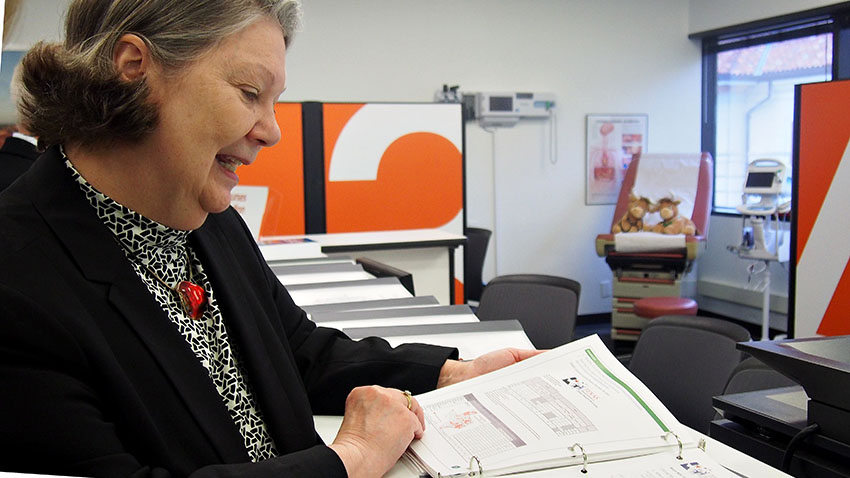This academic year, the Health Informatics and Health IT certification program, designed to prepare post-baccalaureate students for work in health informatics and health information technology, moved from the College of Natural Sciences to the McCombs School of Business.
“Medicine is a business, bottom line,” program director Dr. Leanne Field said.
The healthcare industry is currently undergoing a massive shift from being a fee-for-service system, based on the quantity of care given to a patient, to a value-based one, where more emphasis is placed on quality of care. With this comes a major change in how the business of healthcare works, said Richard Nauert, a professor in the program who teaches a course called Operational Models of Healthcare Systems.
“One of the confusing parts about American healthcare is the complexity of finance,” Nauert said. “If you’re a doctor, you can perform the same thing on five patients, and get paid five different amounts.”
In 2008, the government started to push doctors and hospitals to go digital and adopt electronic health records, Nauert said.
“Our program started with the intention of helping move things to the digital age,” he said.
There’s still a lot of work to be done to digitalize the industry. Nauert likened the development of electronic health records to smartphones.
“We’re in version 1.5 of (electronic health records) right now. I didn’t buy a smartphone until it was version 3,” Nauert said. “And this is what we’re going through in healthcare right now. This is why we need to train people to come in with IT knowledge.”
HIHIT students go through six weeks of hands-on learning, followed by a two-week practicum and a final week of presentation and job interview preparation. At the end of the program, students present posters on their research projects to industry members at a presentation day.
“This program wouldn’t have the power that it does if it were just a course here and a course there,” Field said. “It’s very intensive, but the students walk out and they’re job-ready. And they love it. They love the program and they love the field when they’re working in it.”
Program graduate Trudie Bruno met her future boss at her presentation. Bruno worked as a healthcare consultant for two and a half years and is starting a new job at an Austin health startup, Everlywell, this week.
“That presentation was a great learning experience,” Bruno said. “And because you get to present to industry leaders, there’s the potential to get a job, and that’s what I did.”
Bruno said that the most valuable thing she learned from the program was training in project management.
“Project management experience is difficult to get as an undergrad, so it was really incredible to have so many hours of training in that before I went out in the real world and got a job,” Bruno said.
Ninety-six percent of graduates seeking a related profession end up employed in a year’s time across a total of 143 different organizations, said Kent Nutt, the program’s communications director.
“I just thought those metrics were astounding,” Nutt said. “I just thought that was remarkable.”
The program places heavy emphasis on job preparedness, covering everything from business etiquette to resume writing.
“Of all the colleges at the university, McCombs has always done the best job of building professionalism, so that’s another reason we’re a good fit here, because that’s what we’re about,” Field said. “Taking a fresh college graduate, making them a young professional, helping them. Taking a transitioning soldier and providing them with a new career opportunity, and it’s just very rewarding.”
There are two real-time distance education sites for the program — one at UT Southwestern Medical Center and another at The Army Garrison at Ft. Hood. Field is hoping to expand veteran participation in the program.
“For the soldiers, it’s an opportunity for them to have a career. They are fantastic in leadership, discipline, but I think it’s hard for some of the jobs they’ve had in the military to translate over to civilian careers,” Field said. “We’re with them. We want to continue to support them until they’re successful in whatever they do.”















